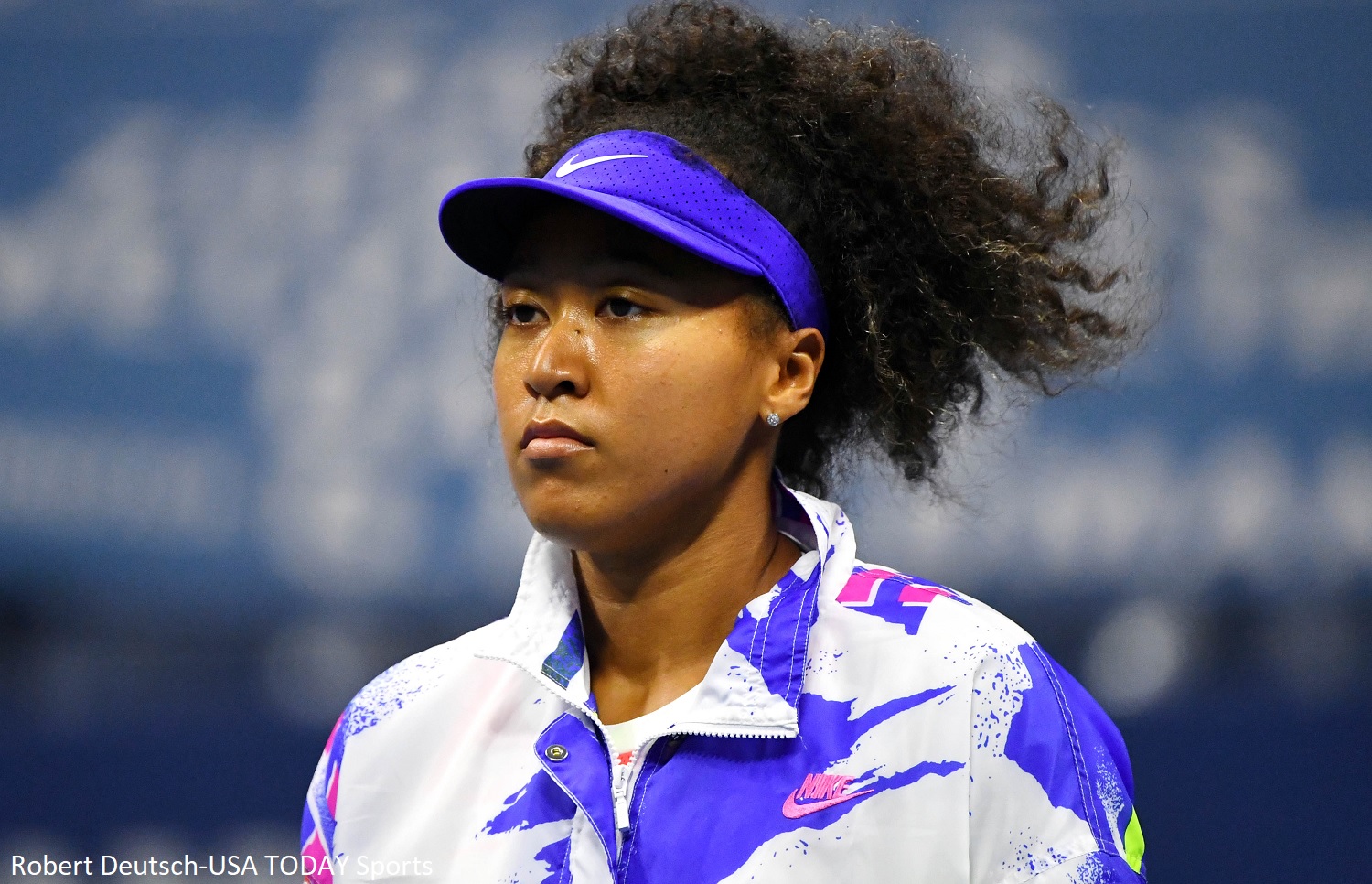
Naomi Osaka announced on Monday that she was withdrawing from the French Open following a controversy over her media boycott. The 23-year-old tennis star sparked a debate last week when she announced on Wednesday that she would not be fulfilling her media obligations at the French Open. She cited her social anxiety and the need to protect her mental health as the reason for her decision, knowing she would be facing fines for her choice.
The grand slam tennis tournaments, including the French Open threatened Osaka with greater discipline beyond an initial fine, such as disqualification. They said they tried to reach out to Osaka to discuss her particular issues, but she did not respond. The matter was resolved when Osaka withdrew prior to her second-round match at Roland Garros.
Osaka shared in her announcement Monday that dealing with the media gives her anxiety.
Withdrawing from the tournament was probably the best outcome given the situation. Osaka should not be excused from her media obligations when every other player is forced to conduct press conferences. And if the press conferences cause her so much anxiety that she was refusing to do them, then it’s probably best for her health to step away from tennis to recover.
I have zero doubts about the legitimacy or seriousness of Osaka’s issues. But it is my opinion that Osaka’s anxiety regarding the media is the manifestation of a different problem, one that she needs to address, and one that is not a media issue.
It is my opinion that Osaka is suffering from an issue that was so visible with recent champion Ronda Rousey that I have called it “Ronda Rousey Disease.”
Fans may recall that around 2013 and 2014, Rousey absolutely exploded in popularity. She was a former Olympian who turned into a Strikeforce women’s MMA champion. She was so dominant and so good that the UFC, which previously only allowed men to fight, created a women’s weight division for her. Rousey was undefeated, intimidating, and a symbol of strength and dominance for women across the globe. She had an aura of invincibility surrounding her.
But then on November 15, 2015, everything changed.
For the first time ever, Rousey lost a professional MMA fight. Holly Holm stunned her with a kick to the head and knocked her out, handing Rousey her first loss ever.
Rousey was stunned, shocked, and embarrassed. She was used to winning, and likely believed she could not be beat. She hid her face so people could not see her injuries. She struggled to eat. She even later said she had some suicidal thoughts after the loss.
Rousey had an extremely difficult time coping with her first and only pro MMA defeat. It took over a full year before she worked back up the courage to return to the cage. Previously, she had been fighting at least twice a year. She even had fought three times in 2015.
Rousey finally returned to the cage 13 months later and fought Amanda Nunes for the UFC Women’s Bantamweight Championship in Dec. 2016. She was knocked out in the fight, making her 12-2. That was the end of her professional MMA career. She has never fought again.
So what does this have to do with Osaka?
Rousey was a phenomenal athlete and great MMA champion. But she had one serious weakness: she didn’t know how to handle losing. Once Rousey lost for the first time, so much of what made her great — the aura of invincibility — disappeared, and her career ended.
I think Osaka is dealing with the exact same problem — she is struggling with how to handle her struggles.
Many people heard the words “mental health” and immediately rushed to Osaka’s defense without ever examining the root of the situation. Few have recognized much less touched on what I believe is the impetus for Osaka’s media boycott announcement last week.
Prior to the French Open, Osaka had played in five events in 2021. Three of the events were on hard courts. This is how she finished in the three hard court events: semifinals, win, quarterfinals. The victory came at the Australian Open, one of the four majors. She seemed to be having a great start to the year.
But as the spring rolled around and the next major on the calendar was the French Open, it became clay court season. And that is where Osaka struggles.
She lost in the second round of the Madrid Open. Then she lost in the second round (her first match) of the Italian Open. Next up was the French Open.
Osaka was entering the clay-court major 1-2 on clay this year, with a pair of early exits on the surface. Keep in mind that Osaka, a four-time major champion, had never previously advanced past the third round of the French Open.
It’s clear to me that Osaka was worried that she was going to lose early in the French Open this year, and she couldn’t handle it. She feared embarrassment. She feared humiliation. Her worst nightmare was another early exit and having to answer questions about her clay court struggles. She got so worked up about this fear that she announced ahead of the tournament that she wouldn’t be talking with the media.
Her long note about problems with the media really could have been boiled down to this simple statement: “I am worried that I am going to lose early in the French Open this year, and I don’t think I will be able to handle the embarrassment and disappointment that comes with an early-round loss at a major. I am also very sensitive about my ongoing clay-court struggles and am not currently in the proper mental state to answer any questions about this issue.”
I believe that is really what is happening. Osaka is facing adversity on clay courts, she is facing losing, and she does not know how to handle it. So her temporary solution was to deflect from the core issue and blame the media. Her second resolution — to withdraw from the tournament and step away — was a better step towards fixing the issue.
Osaka needs to be told — and needs to understand — that it is OK to lose, and that it is OK to have a weakness. Losing is part of tennis and part of every sport. There has never been an MLB, NBA or NHL team that won the championship by going undefeated. Since 1972, no Super Bowl champion has gone undefeated. Players lose and teams lose, it happens all the time. And weaknesses are new strengths waiting to be discovered.
In tennis specifically, every champion has had early losses in majors. Everyone gets knocked out early sometimes. Many of the greatest champions have also had weaknesses on certain surfaces. Pete Sampras won 14 majors and is one of the greatest tennis players of all time. He never won the French Open and never even reached the finals there. Osaka’s problems are not unique!
Since 2020, Osaka has gone 29-6 on hard courts. All four of her major wins have been on hard courts. She is a beast on hard courts. But she hasn’t been past the third round at Wimbledon (grass courts) or the French Open (clay courts).
Osaka really has two choices: she can either try to adjust her game to excel on the other surfaces, or she can “punt” on some of those surfaces to focus on being a hard court superstar.
The easier path would be to focus on being a hard court player. The more difficult path would be trying to be an all-around great player.
Those who like seeing greatness in sports are hoping that Osaka chooses the latter. She just needs to keep being reminded that it is OK to struggle, it is OK to lose, and that nobody is expecting perfection along the way. She also needs to be reminded that those who mock or meme her during her struggles are losers to whom she should not pay attention.
Finally, Osaka should post this great Vince Lombardi quote about adversity — my wife’s favorite quote — on her walls:
“It’s not whether you get knocked down, it’s whether you get up.”
UPDATE: Osaka’s sister has shared Naomi’s reason for the media boycott.














